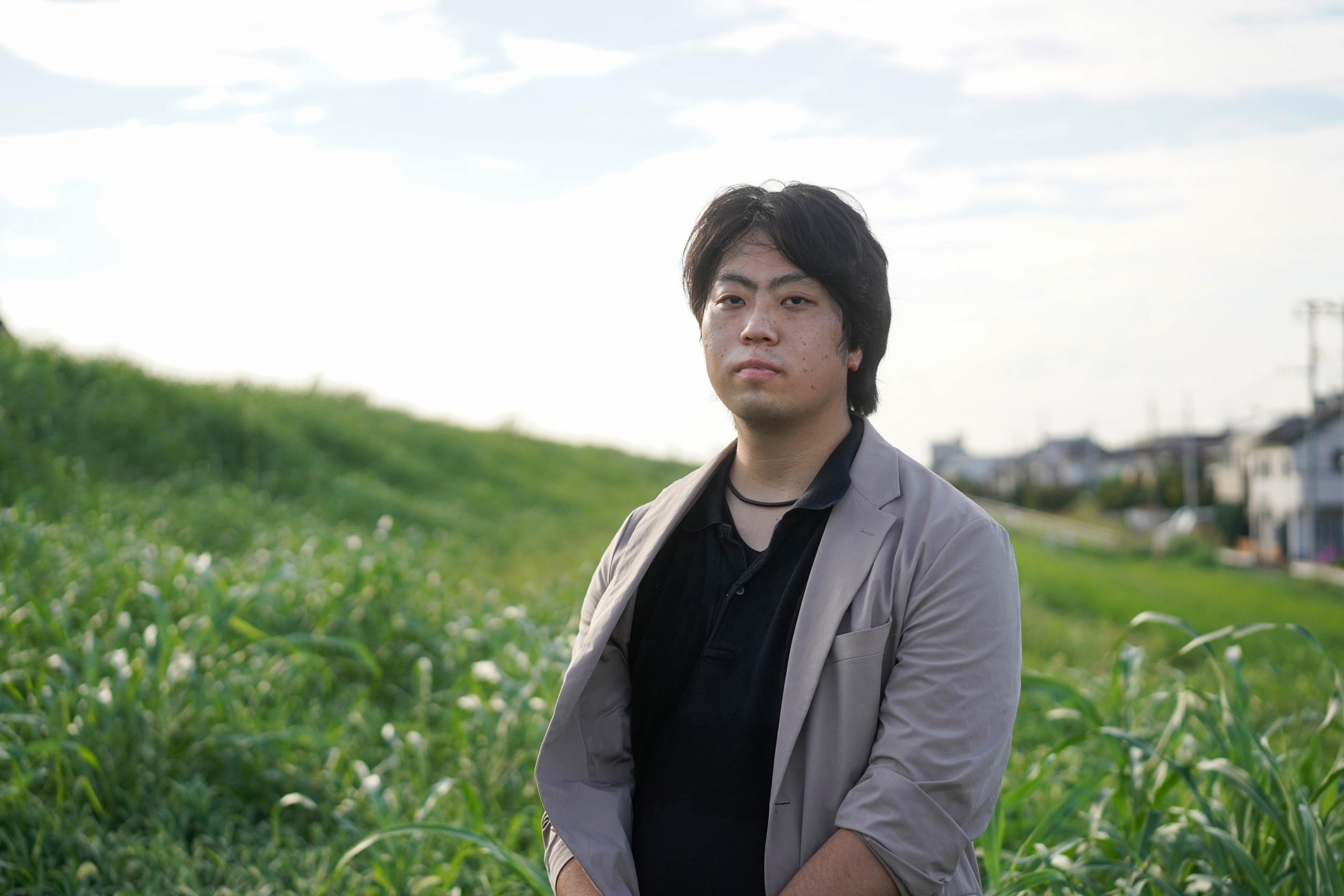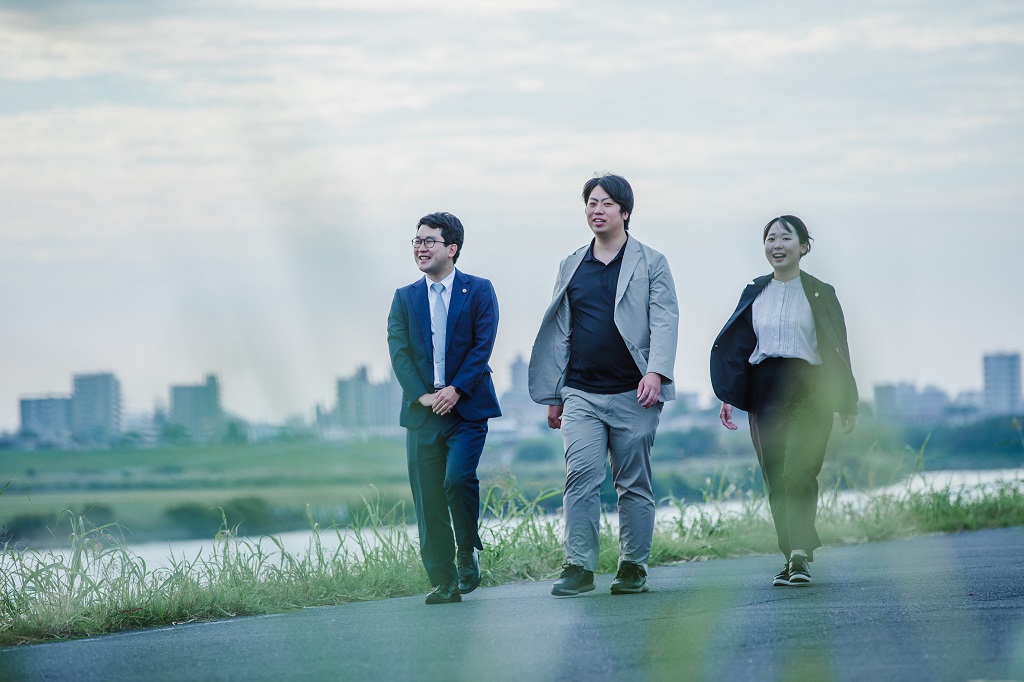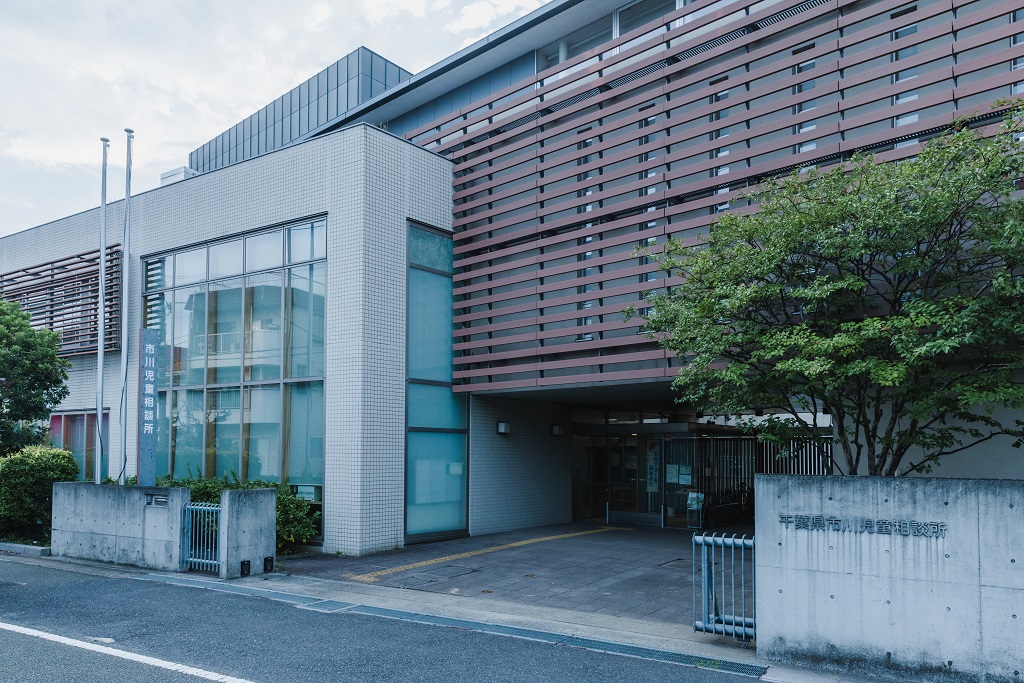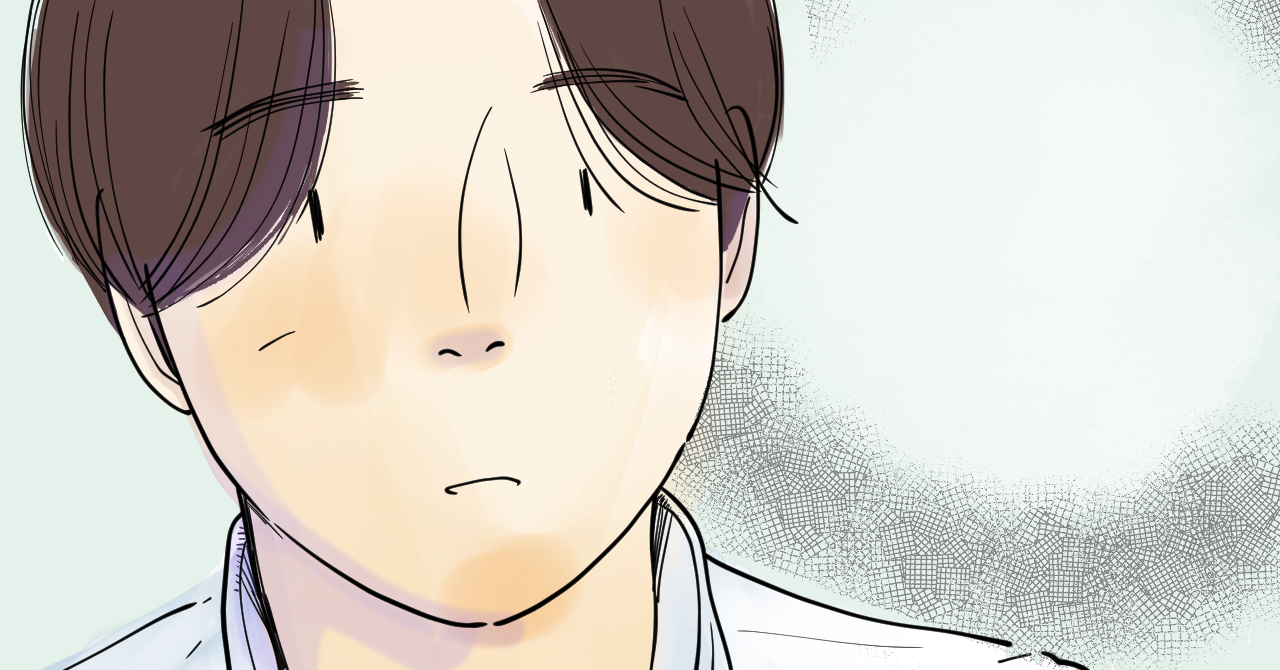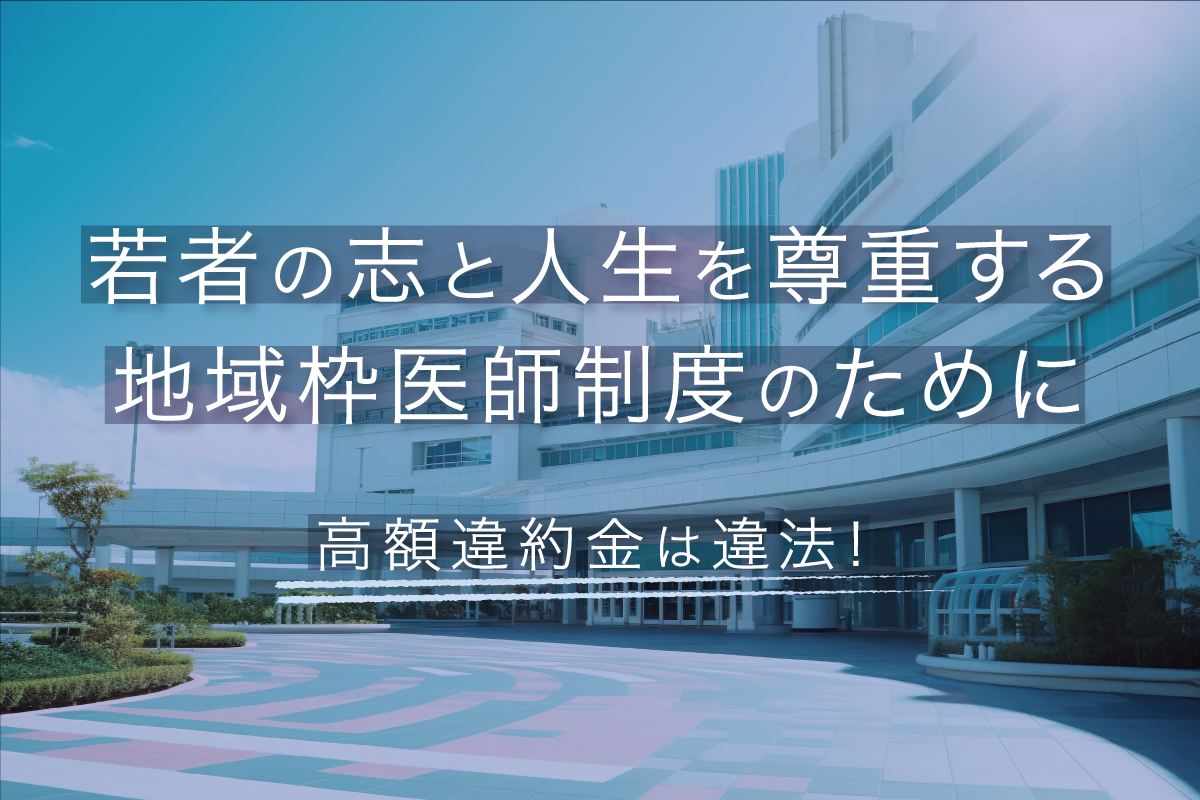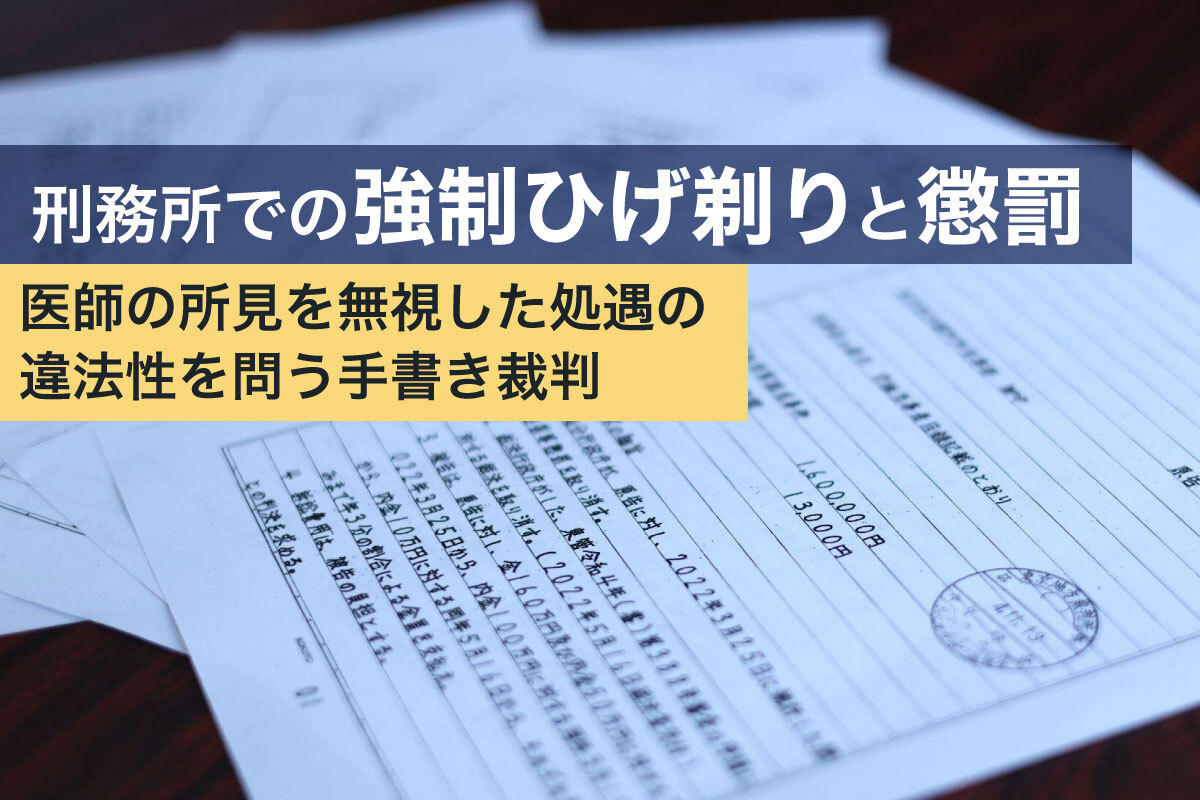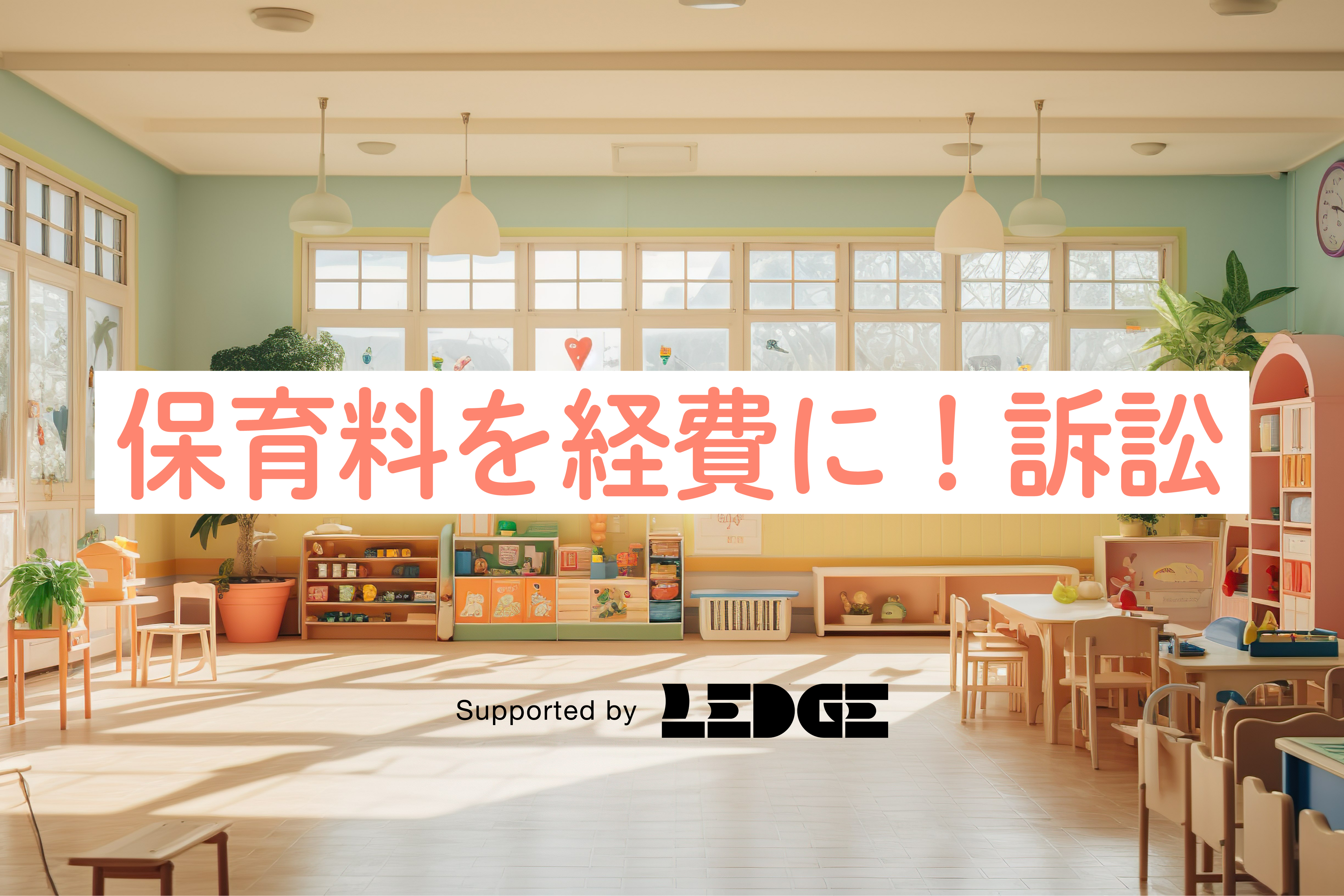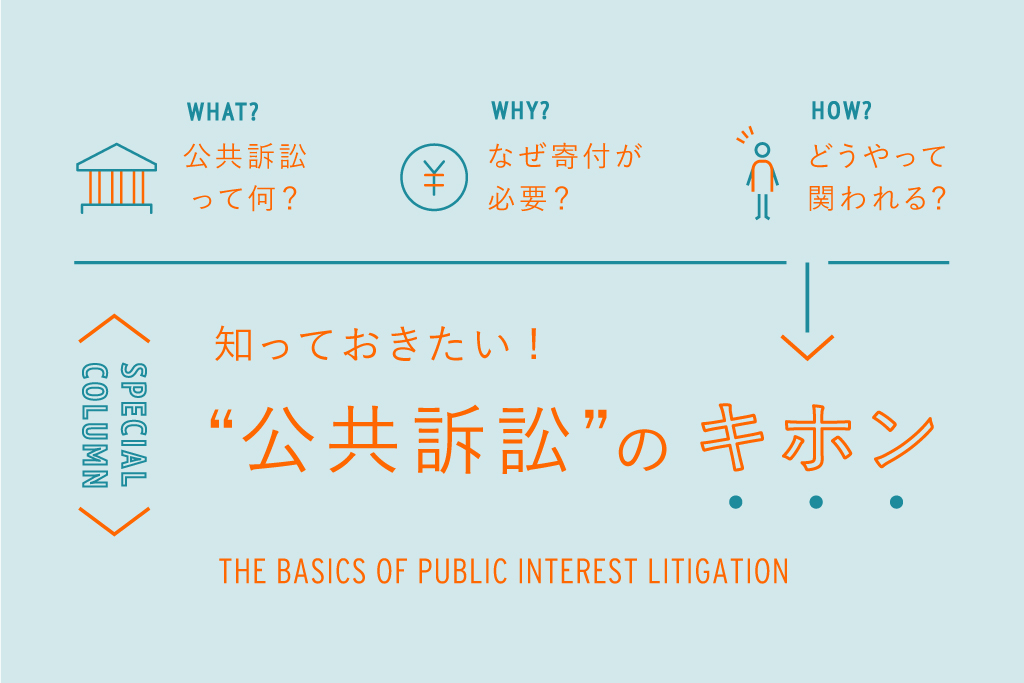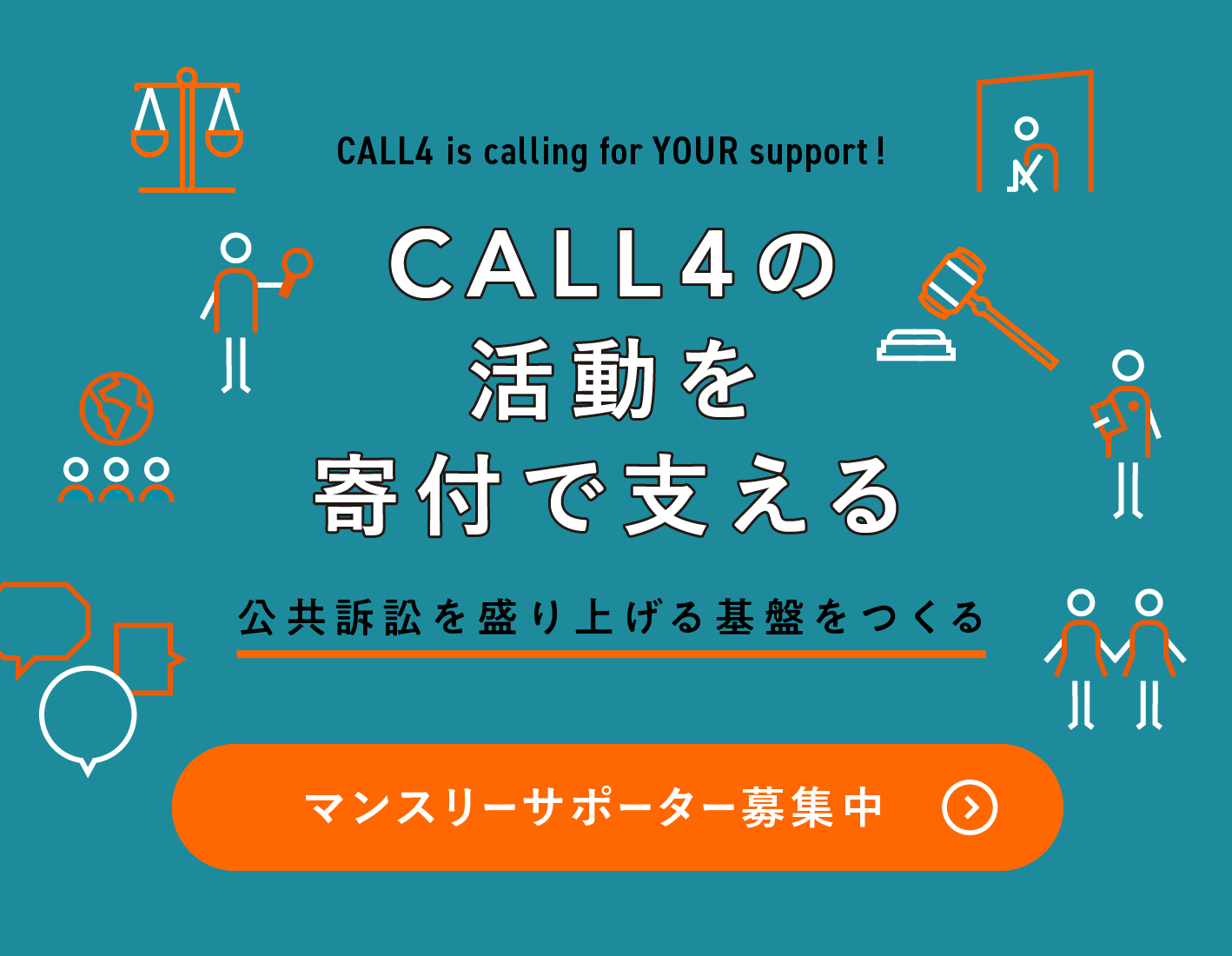「子どもと向き合う時間がほしい」児童相談所の労働環境改善を!訴訟 “Need more time to face the children” Improve the working environment of Child Guidance Centers! lawsuit
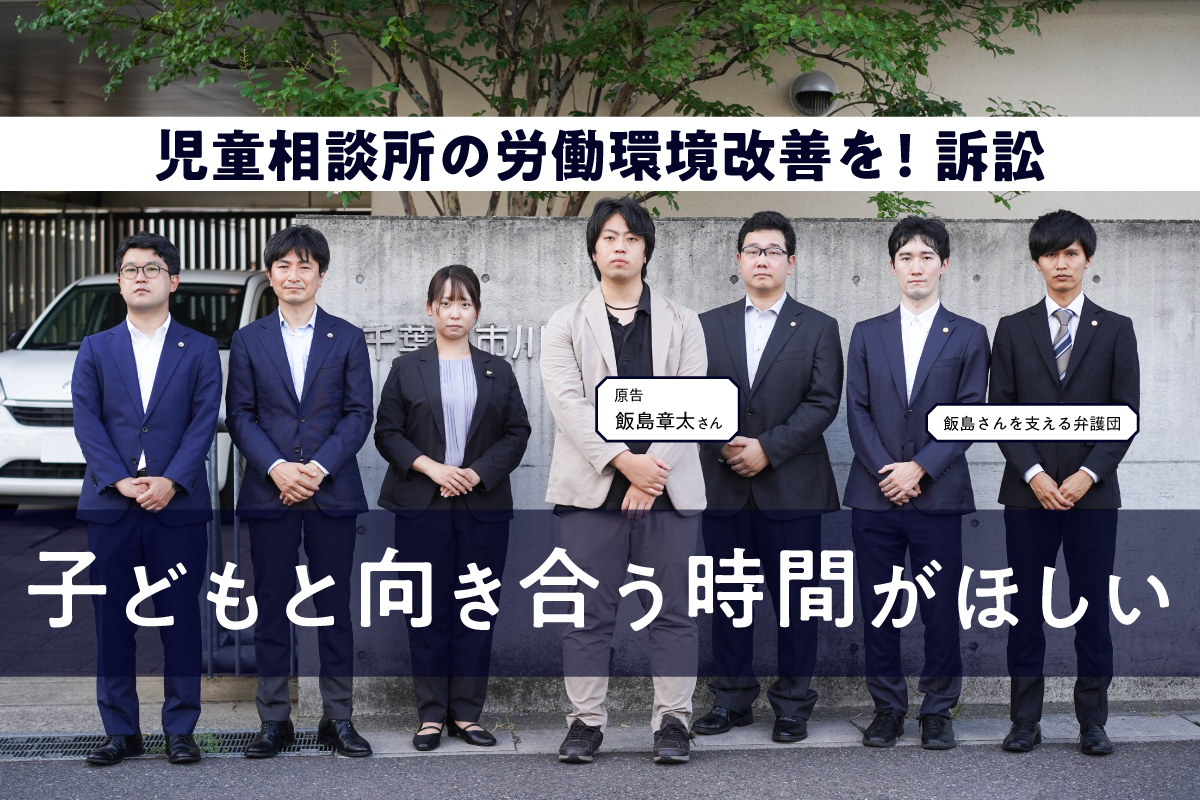
原告の飯島さんは、子ども電話相談等を通じて、児童相談所の児童を支える仕事をしたいと志し児童相談所職員となりました。しかし、入所した児童相談所では研修制度の不備や人員の慢性的不足からくる長時間労働が常態化していました。
この訴訟を通じて、児童相談所の労働環境について問題提起をし、慢性的な人員不足の解消等を実現し、職員が、一人一人の児童と充分に向き合える環境が整うことを目指します。
Mr. Iijima, the plaintiff, became a Child Guidance Center employee as he wanted to support children at the center through his experiences in telephone child consultation services. However, long working hours were the norm due to inadequate training systems and chronic shortages of staff at the Child Guidance Center where he worked.
We aim to raise the issue of the working environment of Child Guidance Centers, resolve the chronic understaffing, and create an environment in which employees can fully deal with each child individually through this lawsuit.
はじめに
様々な事情によって保護された子ども達を見守る児童相談所の児童相談所職員。心の不安を抱える子どもたちにとって児童相談所職員が最後の頼りです。
千葉県の市川児童相談所では、そんな大切な仕事を担う児童相談所職員のうち児童指導員の16・7%が精神疾患を発症し長期療養をし、特に、採用後間もない若手職員に至っては2人に1人が精神疾患で長期療養を行っています(千葉県議会 令和3年総務防災常任委員会(2021.12.13)参照)。そのような労働環境で、子ども一人一人に職員が目を配れるのでしょうか?子どもが発するSOSに気付けるのでしょうか?
飯島章太さんは、2019年4月、新卒で、市川児童相談所に児童指導員として採用された若手職員の1人です。児童指導員の職務は、一時保護所で、(1)一時保護している子どもの生活指導、学習指導、行動観察、行動診断、緊急時の対応等一時保護業務全般に関すること (2) 児童福祉司や児童心理司等と連携して子どもや保護者等への指導を行うこと、とされています。
しかし、飯島さんは、長時間労働、業務自体のストレスや子ども一人一人と向き合えない苦悩から精神疾患を発症し、休職、そして退職を余儀なくされました。
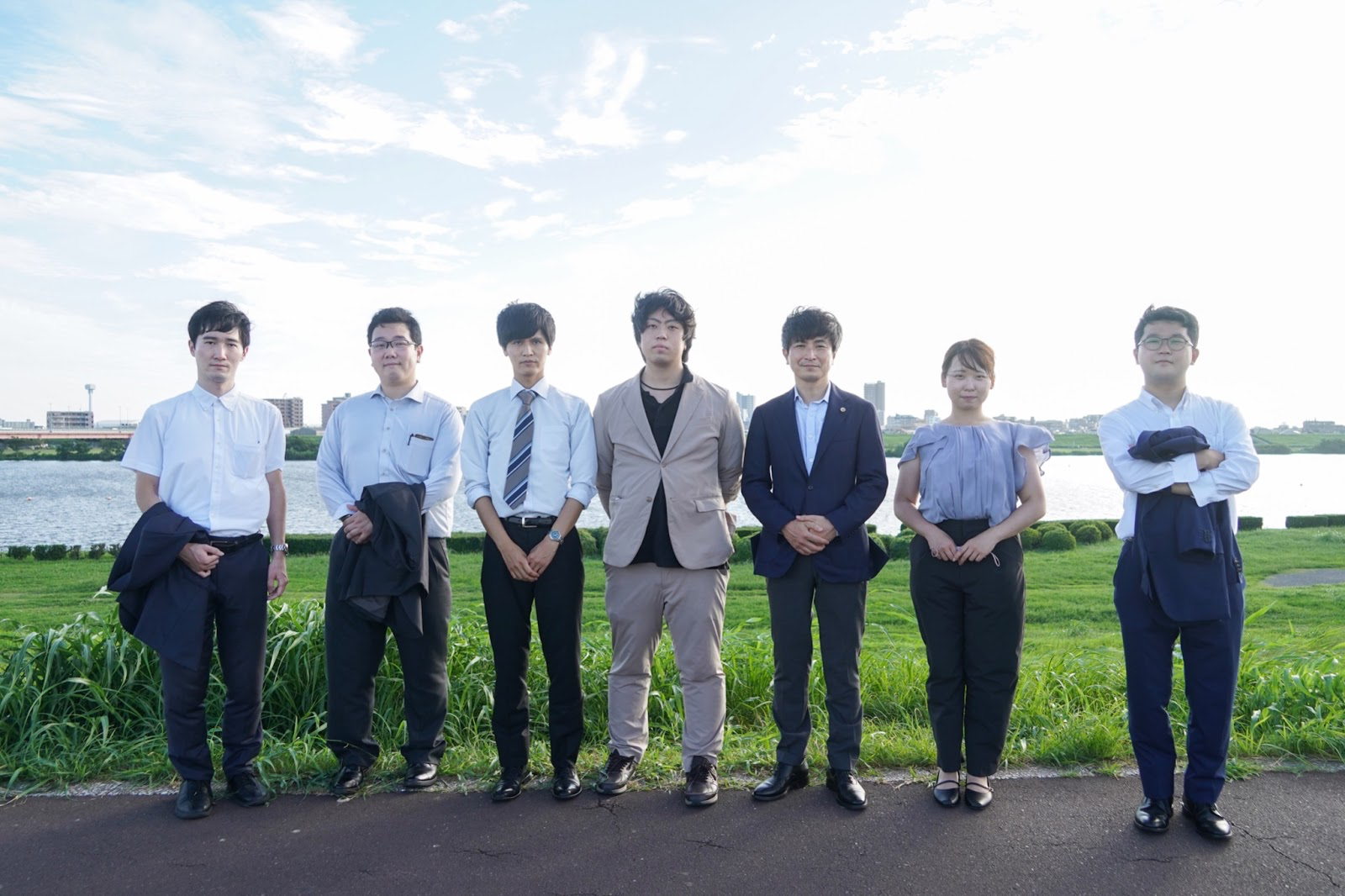
▲原告の飯島さんと弁護団。児童相談所職員の過酷な労働環境改善への思いをともに持つ。
訴訟の意味
飯島さんと私たち弁護団は、飯島さんの権利回復がされ、さらには、千葉県内の児童相談所職員の労働環境改善と人員不足解消を通じて、児童相談所職員が子ども一人一人と向き合える環境が実現されることを目指し、裁判をすることを決意しました。
決して、市川児童相談所や千葉県の児童相談所だけの問題ではないはずです。ぜひご注目ください。
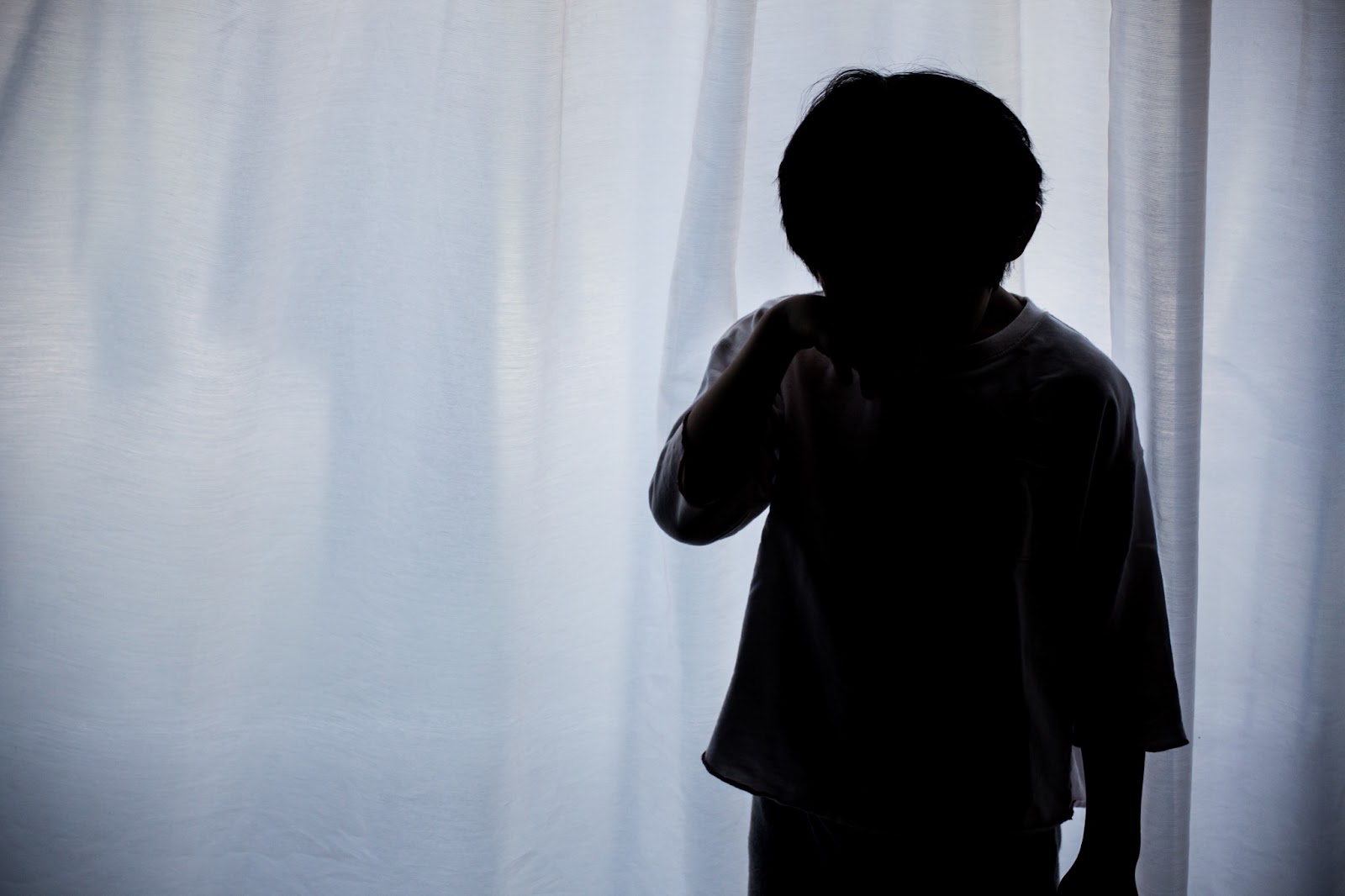
▲児童相談所に保護される子どもたちの約6割が虐待による一時保護。心身のケアが重要となる。
訴訟の争点
1.夜間勤務中の時間が労働時間に該当するか否か
飯島さんを含む一時保護所配属の児童指導員と保育士は、定期的に夜間勤務を命じられていました。夜間勤務中には、1時間に1回の見回りや、子どもの体調が悪くなった際の対応、緊急の一時保護の要請への対応等が求められていました。労働から解放されているとは到底言えず、夜間勤務中の時間も労働時間に該当するものと考えられます。しかし、千葉県は夜間勤務を労働時間と評価することなく、労働時間に対応する賃金を支払っていませんでした。
今回の裁判では、夜間勤務中の時間が労働時間に該当することを前提として、未払分の賃金について、請求しております。したがって、夜間勤務中の時間が労働時間に該当するか否かが、大きな訴訟上の争点となります。
2.千葉県が安全配慮義務を果たしていたか否か
人を雇う組織は、労働者を業務に従事させるに際し、「業務の遂行に伴う心労や心理的負荷等が過度に蓄積して、労働者の心身の健康を損なうことがないよう注意する義務」を負っています。
しかし、児童相談所では子どもの人数に対して職員の人数が足りておらず、職員一人一人に過重な負荷がかかっているのが現実です。
今回の裁判では、千葉県が飯島さんの心身の健康に配慮して、適切な人材配置、業務分担を行うべきところ、それが実施されることなく、飯島さんの健康が害された、として損害賠償を請求しています。
したがって、この点についての県の義務違反の有無も争点となります。
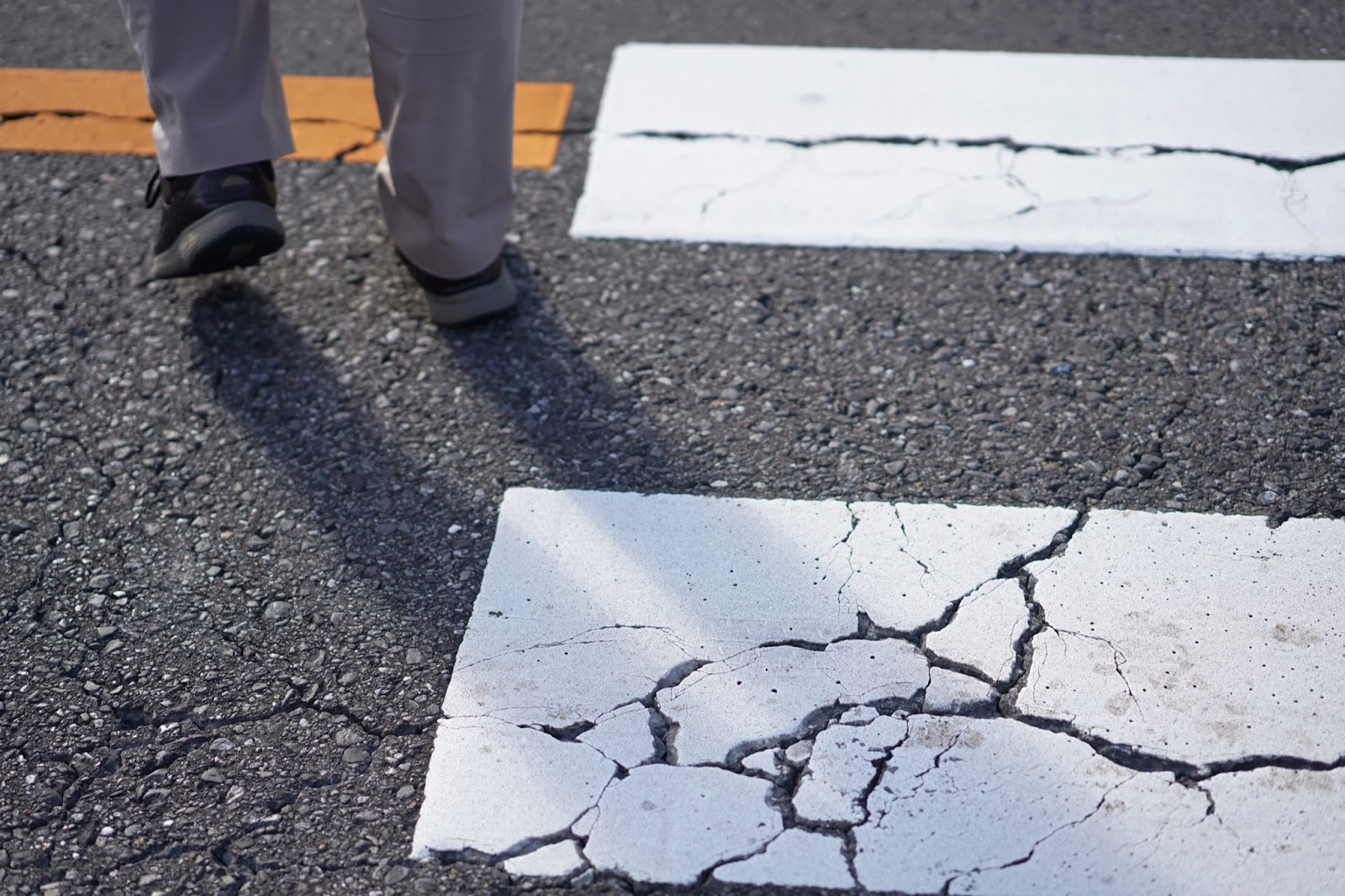
▲飯島さんは復職にあたり規定の休憩時間の確保を求めたがかなわなかった。
原告の思い
一時保護所の仕事はとてもやりがいがありましたし、大事な仕事だと感じていました。子どもたちとのやりとりのなかで、彼女ら彼らのことをとても尊敬する場面にも出会いましたし、その中でケアが必要だと感じる場面も数々ありました。私もこっそり子どもたちから話を聞いたり、将来の夢や今考えていることを聞かせてもらったりする中で、一時保護所の重要性をより一層感じることになりました。
今回の提訴は、裁判の性質上金銭請求がメインになりますが、むしろ今回の訴訟を通じて、一時保護所を知ってもらったり、その中で千葉県、そして国の一時保護所への改善のうごきが加速したりすることを願う思いで提訴しております。
今回、このページをみていただいた方の関心やアクションに少しでもつながっていただけたらと思っており、私にできることでしたらできる限り努力したいと思います。どうぞよろしくお願いいたします。
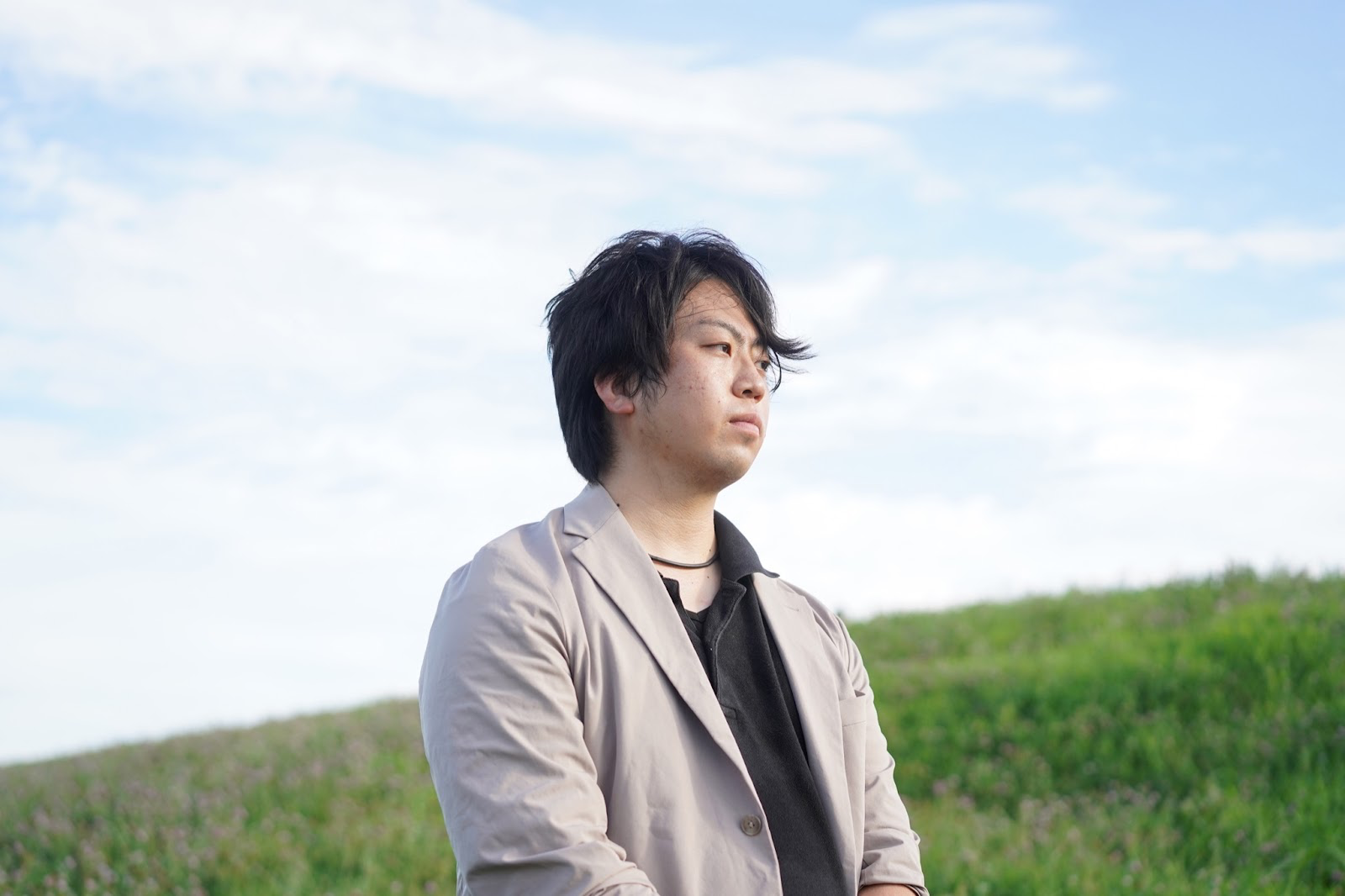
▲原告の飯島さんは、学生時代から子どもの電話相談ボランティアをしていた。
資金の使途
協力医師、専門家証人らへの謝礼(意見書、証言等) 50万円
訴訟実費(印紙、コピー代、交通費等) 50万円
広報費用(シンポジウム、原告募集) 50万円
ほか担当弁護団の労力も相当なものであるため、費用の額によっては弁護団弁護士への手当に使わせていただくことがあります。
寄付のお願い
今回の裁判は、県を相手にした裁判であり、社会が児童相談所や一時保護所に注目していることから、報道もなされ本件訴訟自体も注目されています。
裁判は長期間に及ぶ可能性が高く、訴訟においては、公務員法学者、児童相談所等研究者、過労とうつ病発症の因果関係をめぐる医師等専門的な事項の立証も多数必要になります。
皆様からのご支援は長い訴訟を続けるにあたり、原告及び弁護団の心の支えになります。
何卒よろしくお願い申し上げます。
<銀行振込をご希望の方へ>
銀行振込でのご寄付をご希望の方は、以下の弁護団の口座へご送金いただけますようお願いいたします。
千葉銀行中央支店 普通口座 4515012
口座名義:児相弁護団 笠原菜摘(ジソウベンゴダン カサハラナツミ)
担当弁護団の紹介
舩澤 弘行(弁護団長)房総法律事務所所属
足立 啓輔(事務局長)藤井・滝沢綜合法律事務所所属
佐々木 喬弘 千葉第一法律事務所所属
広松 大輝 千葉中央法律事務所所属
笠原 菜摘 藤井・滝沢綜合法律事務所所属
米山 和希 千葉中央法律事務所所属
土居 太郎 千葉中央法律事務所所属
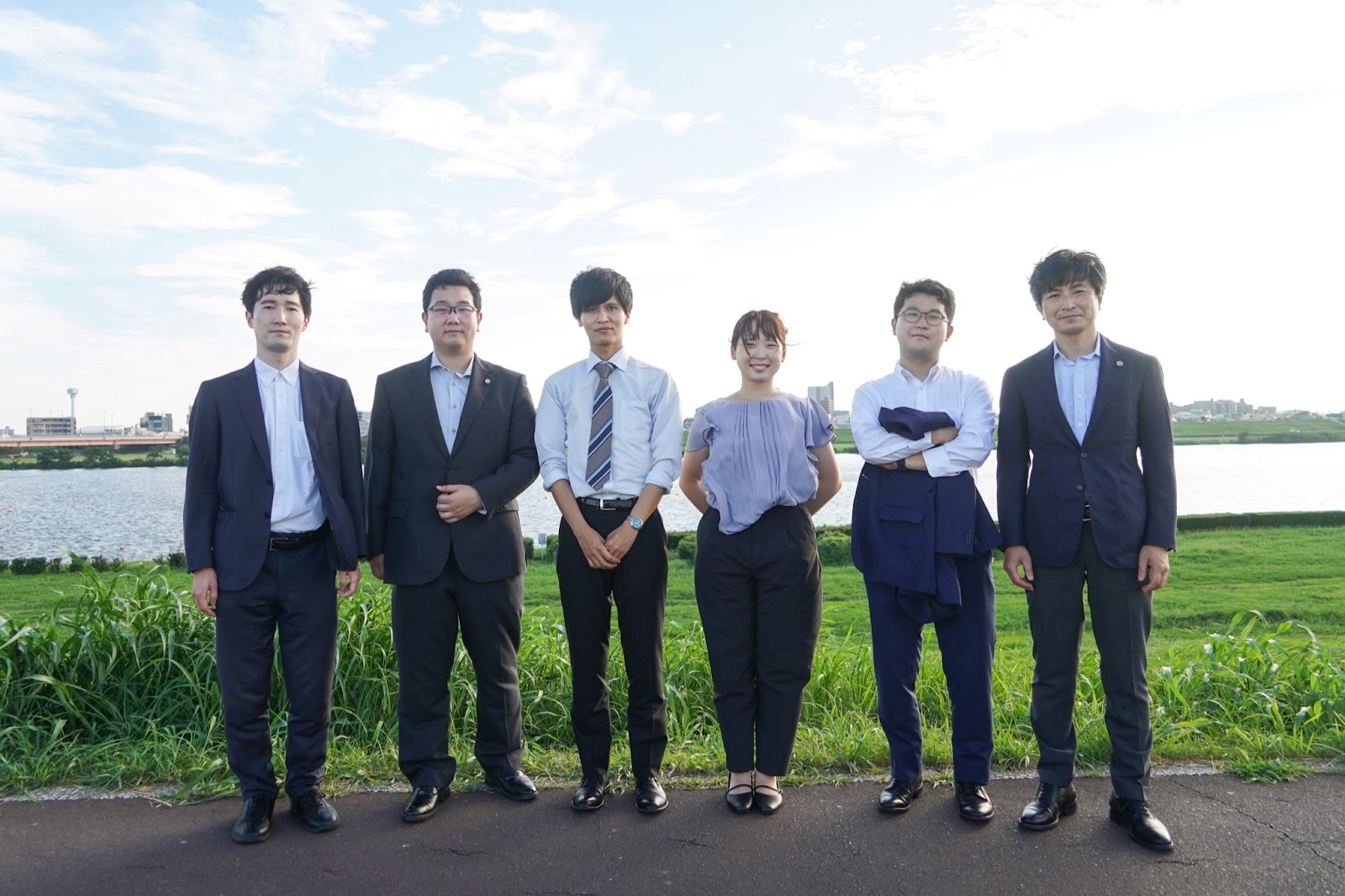
▲労働問題や福祉の分野に強い弁護士が集まって弁護団を結成。
【写真家プロフィール】
長谷川 美祈
1973年生まれ。設計士として働いた後、写真家に。2019年、児童虐待をテーマにした写真集『Internal Notebook』をイタリアの出版社から日英併記で刊行。ペルーで写真集の賞を受賞。日本では子どもや女性の社会問題をテーマに撮影している。
*Translated by Google translate
Introduction
Child consultation center staff look after children who have been taken into custody for various reasons. Child consultation center staff are the last resort for children who are emotionally anxious.
At Ichikawa Child Consultation Center in Chiba Prefecture, 16.7% of the child guidance staff who carry out such important work have developed mental illnesses and are undergoing long-term treatment, and in particular, one in two young staff members who have just been hired are undergoing long-term treatment for mental illness (see Chiba Prefectural Assembly, Reiwa 3, General Affairs and Disaster Prevention Standing Committee (2021.12.13)). In such a working environment, can staff keep an eye on each individual child? Can they hear the SOS signals from children?
Shota Iijima is one of the young staff members who was hired as a child guidance officer at Ichikawa Child Guidance Center as a new graduate in April 2019. The duties of a child guidance officer at the temporary protection center are (1) to handle all aspects of temporary protection work, such as lifestyle guidance, learning guidance, behavioral observation, behavioral diagnosis, and emergency response for children under temporary protection, and (2) to provide guidance to children and their guardians in cooperation with child welfare officers and child psychologists.
However, Iijima developed a mental illness due to long working hours, the stress of the job itself, and the anguish of not being able to spend time with each child individually, and was forced to take a leave of absence and then resign.

Plaintiff Iijima and her legal team. They share the same desire to improve the harsh working conditions of child consultation center staff.
What does the lawsuit mean?
Ms. Iijima and our legal team decided to take the case to court, with the goal of having her rights restored, and also to see an environment created in which child consultation center staff in Chiba Prefecture can spend time with each individual child through improvements to their working environment and elimination of staff shortages.
This is by no means an issue limited to Ichikawa Child Consultation Center or the Chiba Child Consultation Center. Please pay attention to this issue.

▲About 60% of children taken into care by child consultation centers are temporarily taken into care due to abuse. Physical and mental care is important.
The issues at issue in the lawsuit
1. Whether or not the time spent on night shifts is considered working hours
Child guidance counselors and nursery teachers assigned to temporary shelters, including Ms. Iijima, were regularly ordered to work night shifts. During night shifts, they were required to patrol the facility once per hour, respond when children became ill, and respond to emergency requests for temporary shelter. It cannot be said that they were free from work, and the time spent on night shifts can be considered working hours. However, Chiba Prefecture did not consider night shifts to be working hours and did not pay them the wages corresponding to the working hours.
In this lawsuit, the claim is for unpaid wages on the premise that the time spent on night shifts corresponds to working hours. Therefore, the main point of contention in the lawsuit is whether the time spent on night shifts corresponds to working hours.
2. Whether or not Chiba Prefecture fulfilled its duty of care
When employing workers, organizations have a duty to take care to ensure that the mental and physical health of workers is not damaged by excessive mental stress or psychological burden associated with the performance of their work.
However, the reality is that child consultation centers do not have enough staff compared to the number of children, and each staff member is placed under an excessive burden.
In this lawsuit, Chiba Prefecture should have taken into consideration Ms. Iijima's physical and mental health and made appropriate personnel allocations and division of duties, but this was not done, and Ms. Iijima's health was harmed, so she is seeking damages.
Therefore, whether or not the prefecture has violated its obligations in this regard will also be an issue.

▲When Iijima returned to work, she requested to be guaranteed the required rest periods, but her request was denied.
Plaintiff’s thoughts
Working at the temporary shelter was very rewarding and I felt it was an important job. In my interactions with the children, there were times when I felt a great respect for them, but there were also many times when I felt that they needed care. I also felt the importance of the temporary shelter even more when I secretly listened to the children's stories and heard their dreams for the future and their current thoughts.
Due to the nature of this lawsuit, the main focus is on claiming money, but we are filing this lawsuit in the hope that it will raise awareness of temporary shelters and, in the process, accelerate efforts by Chiba Prefecture and the nation to make improvements to temporary shelters.
I hope that this page will spark interest and action among those who see it, and I will do my best to achieve this in any way I can. Thank you very much for your support.

▲The plaintiff, Ms. Iijima, has been a volunteer for telephone counseling for children since her student days.
Use of funds
Honoraria for cooperating doctors and expert witnesses (written opinions, testimony, etc.): 500,000 yen Litigation costs (stamps, copying fees, transportation costs, etc.): 500,000 yen Public relations costs (symposiums, recruiting plaintiffs): 500,000 yen
As the efforts of the legal team in charge are also considerable, depending on the amount of expenses, we may use them to provide allowances to the lawyers on the legal team.
Donation Request
This lawsuit is against the prefecture, and because society is paying close attention to child consultation centers and temporary shelters, it has been reported in the media and the lawsuit itself is attracting attention.
The trial is likely to be lengthy, and the case will require the provision of proof on numerous specialist points, including from public servant law scholars, researchers from child consultation centers, and doctors who have verified the causal relationship between overwork and the onset of depression.
Your support will be a great source of moral support for the plaintiffs and their legal team as they continue this long litigation.
We appreciate your cooperation.
<For those who wish to pay by bank transfer>
If you wish to donate by bank transfer, please send your funds to the account listed below.
Chiba Bank Chuo Branch Regular Account 4515012
Account name: Child Welfare Lawyers Group, Natsumi Kasahara
Introduction of the legal team
Hiroyuki Funazawa (Leader of the Law Team) Boso Law Office
Keisuke Adachi (Secretary General) Fujii & Takizawa Law Office
Takahiro Sasaki Chiba First Law Office
Hiroki Hiromatsu Chiba Chuo Law Office
Natsumi Kasahara Fujii & Takizawa Law Office
Kazuki Yoneyama Chiba Chuo Law Office
Taro Doi Chiba Chuo Law Office

▲ Lawyers with expertise in labor and welfare issues came together to form a legal team.
[Photographer profile]
Miki Hasegawa
Born in 1973. After working as an architect, he became a photographer. In 2019, his photo book "Internal Notebook," which focuses on child abuse, was published in both Japanese and English by an Italian publisher. He won an award for his photo book in Peru. In Japan, he takes photographs on the social issues of children and women.
関連コラム
-
2023. 6. 7
あなたにおすすめのケース Recommended case for you
- 外国にルーツを持つ人々 Immigrants/Refugees/Foreign residents in Japan
- ジェンダー・セクシュアリティ Gender/Sexuality
- 医療・福祉・障がい Healthcare/Welfare/Disability
- 働き方 Labor Rights
- 刑事司法 Criminal Justice
- 公正な手続 Procedural Justice
- 情報公開 Information Disclosure
- 政治参加・表現の自由 Democracy/Freedom of Expression
- 環境・災害 Environment/Natural Disasters
- 沖縄 Okinawa
- 個人情報・プライバシー Personal information/Privacy
- アーカイブ Archive
- 全てのケース ALL
